Adam Kay: ‘My internet search history would have made Freddie Mercury blush’
He escaped a career as a doctor for a life in comedy, then left his wife for a man. But it was on a trip to NZ that Adam Kay was almost brought undone.
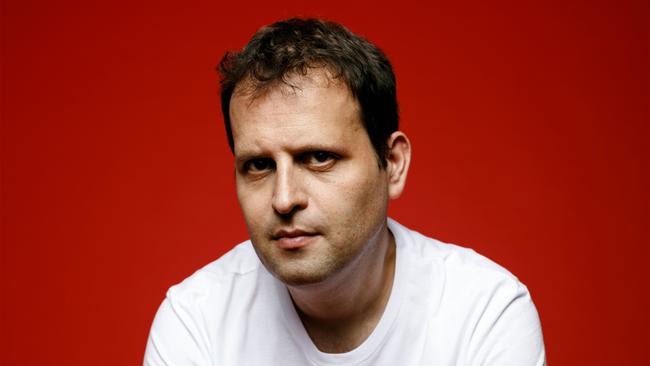
I wasn’t sleeping well. I’d always slept very well as a doctor. I didn’t sleep much and I slept in some odd places – hunched over the steering wheel of my car, curled up next to a filing cabinet, leaning against a storeroom wall like a horse – but I slept well. I guess my brain knew that napping opportunities were rare, so it was always able to press the shut-down button at a second’s notice, until awoken by the next bleep or buzzer.
Ever since leaving medicine a few months earlier, I had found myself jolting awake with a gasp at 3am every night, standing in a labour ward operating theatre. My eyes fogging over as I realise the baby I’ve been racing to save is dead, his tiny hands still and perfect. Trying and failing to place the stitches that might stop this woman from bleeding to death.
The same brain that won’t remember my online banking login details was quite happy to reconstruct the most harrowing day of my life in microscopic detail. The moment the anaesthetist turns off the incongruously jolly radio station. The blood clotting in my shoes. Feeling my voice crack as I ask the scrub nurse for stitch after stitch after stitch after swab after swab after swab. And then I’d wake up, covered in a cold lick of sweat, my heart pounding through every wet pore. The comedown would last for hours. In my worst moments, I was afraid to go to sleep because of what I knew was going to play out.
Waking up in emotional agony, covered in an emulsion of tears and perspiration, isn’t exactly attractive to a new partner – and J and I were still in the “trying hard to impress” stage. Obviously I couldn’t tell him what I was going through in case he realised he’d taken on a defective model. Handily, it was easy enough to pretend everything was all right because our relationship was being conducted remotely.
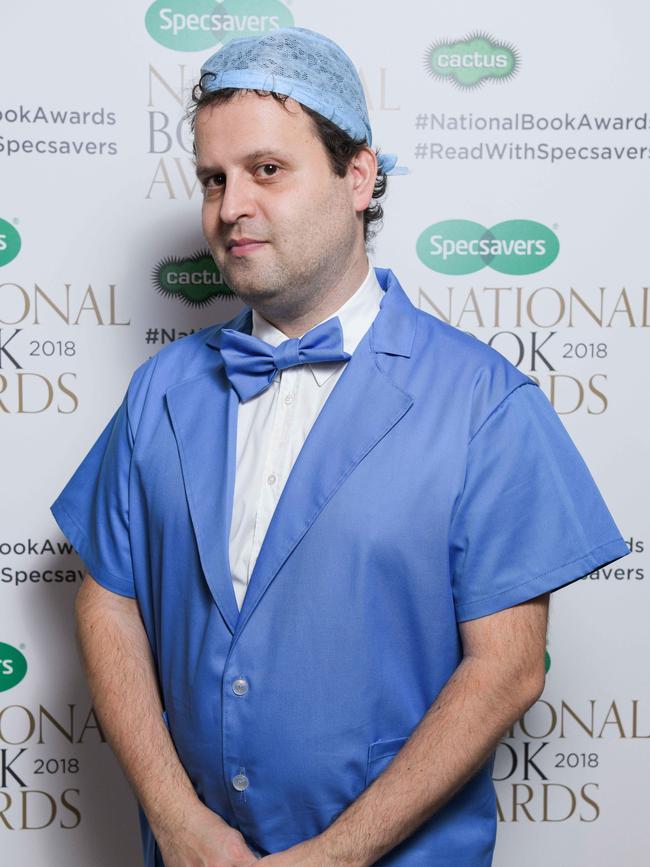
I was living with my parents – every 30-year-old’s dream, but the only option between the catastrophe of my breakup with my wife H and saving up for the deposit on a rented flat. J lived in Glasgow; we’d met on the internet at a time when it was less embarrassing to say you’d met your partner in prison or at an STI clinic. For some reason, he didn’t want to abandon his promising job as a junior TV producer and move in with an itinerant former doctor he’d met three times. But the distance meant that it was fairly easy to pretend I was fine and sane and normal – besides, I’d been pretending one way or another for most of my life.
Considerably less easy was being productive during the day when you’ve slept for only three hours at night. And I needed to be productive: I’d gone from a safe-but-underpaid career as a doctor to an unsafe-and-unpaid career as a writer-comedian.
I was desperately willing comedy to work out. It was something I’d dabbled in over the years, both as a hobby and as an escape from the labour ward pressure-cooker, and I’d pretty much invested all of my hopes in it. Perhaps sucking me in the hardest was the fact that the stakes were so refreshingly low – there’s no formal inquiry when a joke dies. I needed this to work because otherwise… well, I didn’t know what happened otherwise. This was my best attempt at a Plan B and there wasn’t a Plan C.
No mealtime passed without a subtle hint from my mother that I should go back to medicine, usually something along the lines of, “Why don’t you go back to medicine?” or “You’re not even that funny, Adam.” Medicine was the family trade – my dad was a GP of 40 years’ standing, with an enthusiasm for the job that didn’t extend to any other aspect of his life. There was an element of light snobbery – “My son the doctor” could be referenced at book club and theatre club and lunch club.
But career chat was slightly preferable to the other topic of conversation available – that I’d blown up my marriage to H, a woman (and a very nice woman at that), and was now in a relationship with a bloke (and a Scottish bloke at that). Everything in my life that had given me stability and them bragging rights – “My son the straight doctor who sleeps comfortably through the night” – had been obliterated. Perhaps their little digs (“Why don’t you put that in one of your skits?”) were their coping mechanism, even if they weren’t particularly helping me to cope.
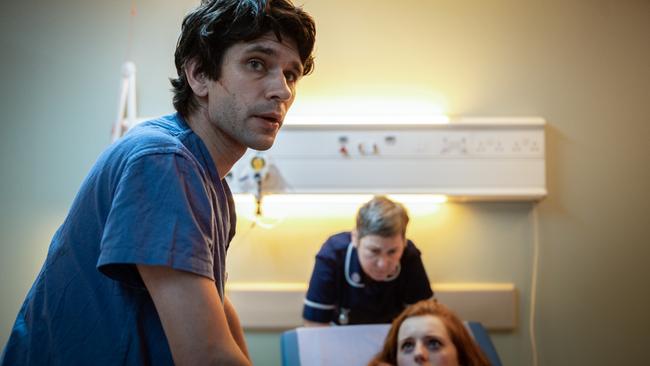
I was entering the death rattle phase of my career in medicine. I was doing the job to the best of my ability but the lighthouse was increasingly unmanned. Comedy had always offered me a way to stay sane: whether through writing in my diaries or doing a few turns behind the mic at comedy clubs. It was a release, of sorts. I would also occasionally find myself embroiled in the strange world of “corporates” – performing in grimly up-lit function suites as part of a company’s Regional Salesperson of the Year awards ceremony.
Then the opportunity arose to perform a 20-minute set at a medical conference in New Zealand. On the face of it, it wasn’t a particularly attractive proposition: they would pay me to fly out from the UK, stay one night, perform and zoom straight off stage to the airport. My wife H tried to explain that the numbers didn’t really make sense. I’d be away from home for five days, using up a hunk of my annual leave, and my fee would work out at much less than minimum wage as a result. I explained that, yes, it seemed like an endurance test but it could lead to amazing new opportunities. I had another motive for making the trip, though: I had decided to cheat on her. I know what you’re thinking. Even now, years after the event, you’re willing me to reconsider. But I’d already worked through this with the perky little devil on my left shoulder and the rather beleaguered little angel on my right.
Reasons this was bad: Cheating is bad. And premeditated cheating is probably worse than spontaneous cheating, in the way that murder is worse than manslaughter.
Reasons this was totally fine: I was going all the way to New Zealand to do it, so she couldn’t possibly find out or get hurt; it was considerate, even. It would only be this one time. I wasn’t lusting after anyone in particular, I didn’t know who I was going to cheat with, just that it needed to happen. And I would be cheating on her with a man, so it basically didn’t count.
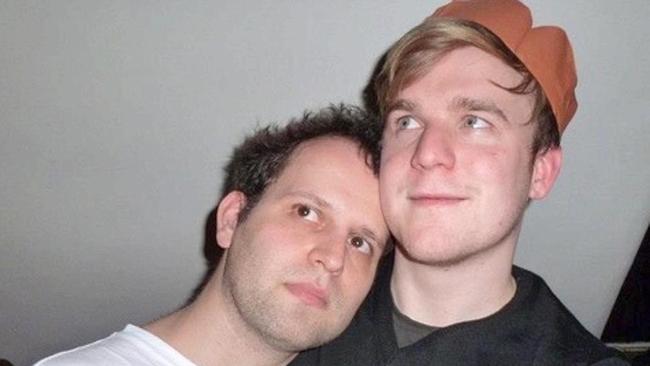
I had already committed to spend the rest of mylife with H and I really wanted to do that, but there was a boil that needed lancing, something I had to do one last time, for old times’ sake, to finally clear my body of the pathogens. My internet search history for the past six months would have made Freddie Mercury blush and I had decided this was the only way to resolve it. Then it would go away forever and I could move on with my nice, normal straight life. Bottled lager! F1!
The numbers spoke for themselves – only two reasons it was bad, against a massive and very well-argued four reasons it was absolutely fine, if you thought about it. Which I did, feverishly, constantly, from the picosecond the gig was first offered to me until the moment I touched down.
After a full day chewing my nails on noisy, airless, cramped planes, I lumbered into the hotel and my body creakily attempted to unfurl itself. I was going into all this with my eyes wide open and armed with reams of data about every possible gay venue in the city – bars and clubs, outdoor spaces, saunas, the full gamut from seedy to fabulous. Bars and clubs, I decided, were too public. Meeting outside felt decidedly criminal and I was in no mood to leave New Zealand with mugshots and a lifelong ban from returning. Saunas sounded like probably the most appealing/least appalling option and the best chance of getting what I wanted pronto and incognito.
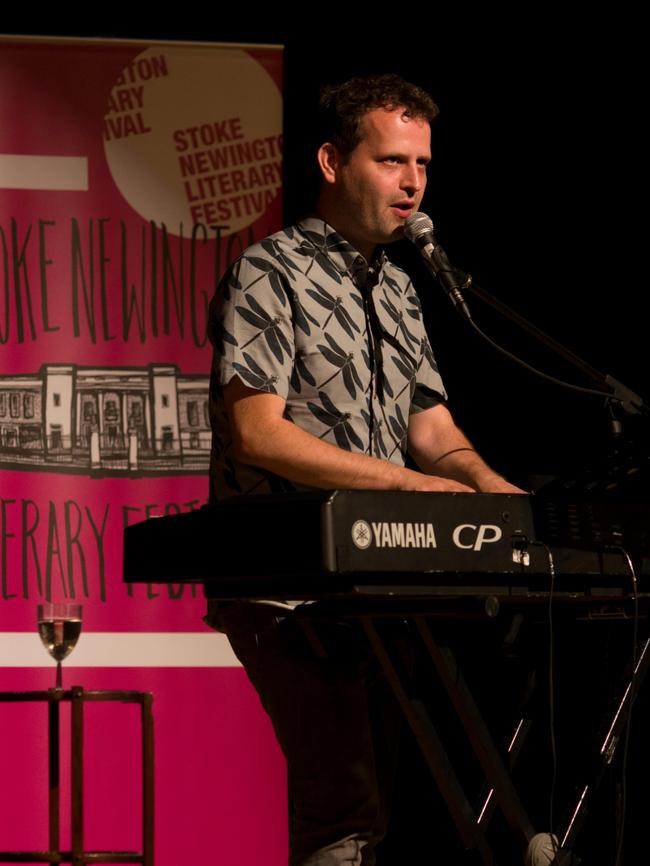
Thanks to my research, I could picture the entrance to the sauna in my head – but I was still a little surprised to come across it for real. I stood for a while around the corner, watching, making sure the coast was clear and that there were no hidden cameras or hunting nets ready to fall on me. In the reception area a man stood behind a counter, expressionless, neither friendly nor unfriendly, just… there. I was expecting him to press a red button and have me arrested but instead he told me the entrance fee, held out his hand for the cash and asked my name. For what, the guest book?
I gave a fake name, which I imagine is fairly standard practice, but spiced things up a little by using an unconvincing French accent I’d practised a few times in the hotel, like I imagine all the best spies do. He handed me a locker key on a wristband and a white towel that had definitely spent some time getting to know a grey sock or two in the washing machine, then nodded towards the changing room door.
I felt sick – not so much butterflies in my stomach as a churning mound of bats. There was something very weird about walking into a sauna that had extremely loud music playing – a place of relaxation reimagined to be utterly unrelaxing. Half a dozen men were sitting around wearing the same uniform: white towel and wristband – in here, we’re all anonymous and equal. I had expected there to be more customers; it was slightly alarming to discover there were only six other people in this city as perverted as me.
They looked up and I smiled nonchalantly. Well, I was going for nonchalantly – it could quite easily have been anything from a scowl to a serial-killer grin. I realised that my research left me in the dark from this point – I was new to the world of saunas, let alone international ones. How does it work? Do we flirt? Am I meant to talk? Where do we go? Surely we don’t kiss?
What actually happened hadn’t occurred to me as a possibility: a man in his 40s stood up, took my arm and wordlessly led me to a dimly lit cubicle, where he raped me.
I was brought up well – I like to give people the benefit of the doubt. I’ve tried to put myself in my rapist’s situation again and again, to work out if there could have been some kind of misunderstanding, something I did wrong. I would have preferred that; I could chalk it up to experience and pledge to communicate better next time. But I can’t – the truth of it is inescapable. I was clear. I said no when it became obvious he wanted this interaction to go a lot further than I did. I said no, again, when he started. I said no when he overpowered me and pushed my head into a wipe-clean cushion that stank of antiseptic. The smell took me out of the moment and briefly back to hospital – being transported away was no bad thing. I tried to scream, knowing even in that moment that I wouldn’t be heard, not by this man who didn’t want to hear and not by anyone else, thanks to the rhythmical pounding of the music.
He peeled himself away from my body, and muttered “Thanks” before leaving. Thanks. You don’t say thanks to someone you’ve just raped, do you? Was coming here in the first place my consent? Not pulling my hand away when he took my arm – was that a way of saying yes, in a language I’d never been taught, negating everything I would say afterwards?
I don’t remember much about my walk backtothe hotel – the streets were a slow, blurry trudge. Contacting the police and putting this nightmare on public record was unthinkable. Saying it out loud would make it real; I would never be able to deny it or pretend it never happened, which already felt like my only way of getting through it. I told myself my case was flimsy anyway – the police, probably puritanical straight men, would tell me you can’t get raped if you go somewhere looking specifically for sex. What was I expecting to happen in a place like that, a round of backgammon?
And so, acting as police, judge and jury, I came to the decision that I should somehow just draw a line under things. Lifting the rug and sweeping as much as possible under it – it was in my doctorly DNA.
The old cliché goes that time is a great healer, but it’s also a pretty ropey one. Ten years later is better than two years later is better than six months later is better than two weeks. It’s now 13 years later. I didn’t tell another human being for over a decade. Even my diary, my confidant for years, was left out of the loop. Maybe I was too ashamed. Maybe I couldn’t face the risk that someone would find my diary and read it. Or maybe I just knew from the moment it happened that I would never forget it: every minute, every second, etched into me in indelible ink, would be with me forever.
Adam Kay’s book about his time as a junior doctor, This is Going to Hurt, has been translated into 37 languages and adapted into a TV series of the same name. This is an edited extract from Undoctored: The Story of a Medic Who Ran Out of Patients, by Adam Kay (Hachette, $32.99), out September 13.

To join the conversation, please log in. Don't have an account? Register
Join the conversation, you are commenting as Logout